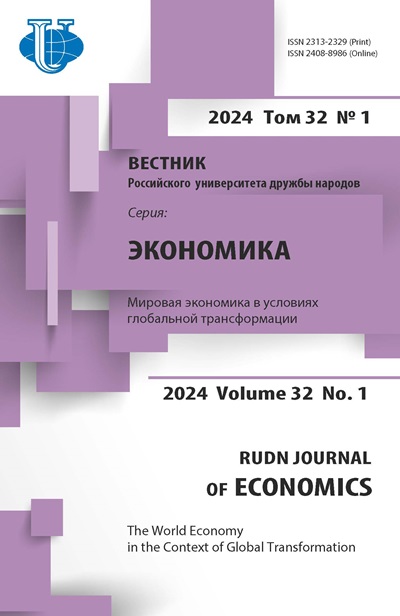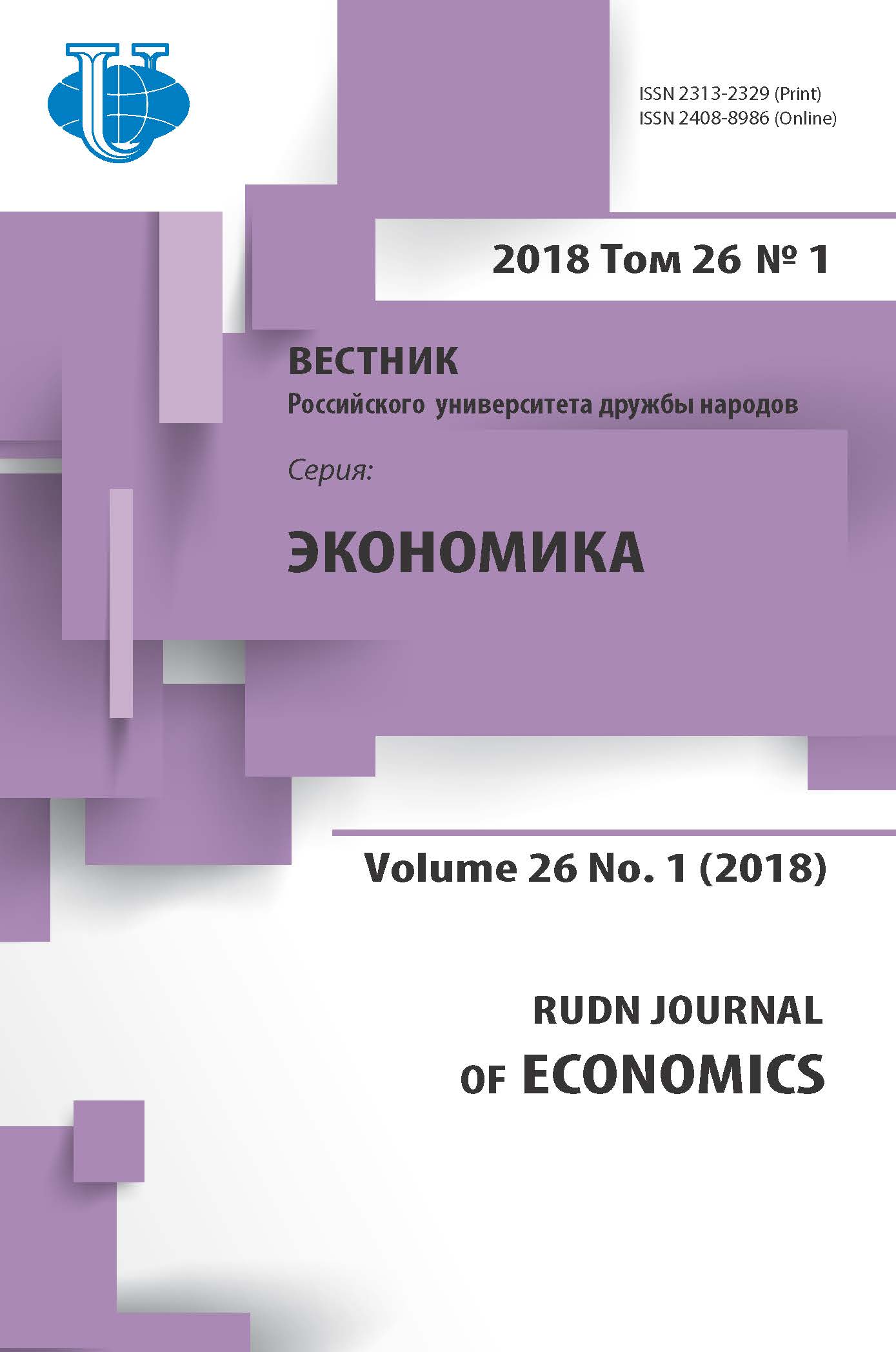Development of clusters in the spacerocket industry as the instrument of forming of the innovation economy
- Authors: Nezhnikova EV1, Glyuzitskiy KK1
-
Affiliations:
- Peoples’ Friendship University of Russia
- Issue: Vol 26, No 1 (2018)
- Pages: 116-124
- Section: INNOVATIONS IN THE MODERN ECONOMY
- URL: https://journals.rudn.ru/economics/article/view/18515
- DOI: https://doi.org/10.22363/2313-2329-2018-26-1-116-124
Cite item
Full Text
Abstract
The paper studies state of development of the space-rocket industry of Russia in the conditions of application of cluster approach is characterized. The author analyzes benefits of transition to the innovation economy by an industry clustering, benefits and shortcomings of cluster policy in detail are considered, the most perspective clusters in the space-rocket industry come to light, comparative analysis of clusters on key performance indicators is carried out. On the basis of the carriedout analysis the author provides the set of guidelines for increase in efficiency of functioning of the existing industry clusters, special attention is focused on increase in number of the participating companies, production process differentiation strengthening and also importance of increase in research potential of the industry is noted.
About the authors
E V Nezhnikova
Peoples’ Friendship University of Russia
Author for correspondence.
Email: katnej@mail.ru
Dr. Econ. Sci., associate Professor
Miklukho-Maklaya str., 6, Moscow, Russia, 117198K K Glyuzitskiy
Peoples’ Friendship University of Russia
Email: glyuzitskiy.k.k@gmail.com
postgraduate student, the department of national economics
Miklukho-Maklaya str., 6, Moscow, Russia, 117198References
- Abashkin V.L., Boyarov A.D., Kutsenko E.S. (2012) Klasternaya politika v Rossii ot teorii k praktike [Cluster policy in Russia: from theory to practice]. Foresight. Vol. 6. No. 3. S. 16—27. (In Russ).
- Filatova M.A. (2014) Perspektivy razvitiya raketno-kosmicheskoj otrasli v Rossii [Prospects for the development of the rocket and space industry in Russia]. Finansy i kredit. No. 1. S 179—180.
- Ivanov N.A., Almazova Т.О. (2015) Adaptaciya teorii sistem massovogo obsluzhivaniya k resheniyu prakticheskih zadach upravleniya proizvodstvennym predpriyatiem [Adaptation of the theory of queuing systems to the solution of practical problems of managing a manufacturing enterprise]. Nauchnoe obozrenie. No. 23. S. 290—294. (In Russ).
- Kuzovleva, I.A. Prokopenkov V.V. (2015) Sistema upravleniya innovacionnym potencialom zhilishchno stroitelnogo klastera [The management system of the innovative potential of the housing cluster]. Promyshlennoe i grazhdanskoe stroitelstvo. No. 11. S. 81—84. (In Russ).
- Nosova S.S. (2017) Innovacionnye territorialnye klastery. [Innovative territorial clusters]. S.S Nosova, V.L. Grankina. M.: RUSAJNS. 266 s. (In Russ).
- Pisarevskaya E.V., Agafonova M.S. (2016) Organizaciya innovacionnyh klasterov v usloviyah segodnyashnej Rossijskoj ehkonomiki [The organization of innovative clusters in today’s Russian economy]. Ekonomicheskie nauki. No. 2. S. 168—172. (In Russ).















